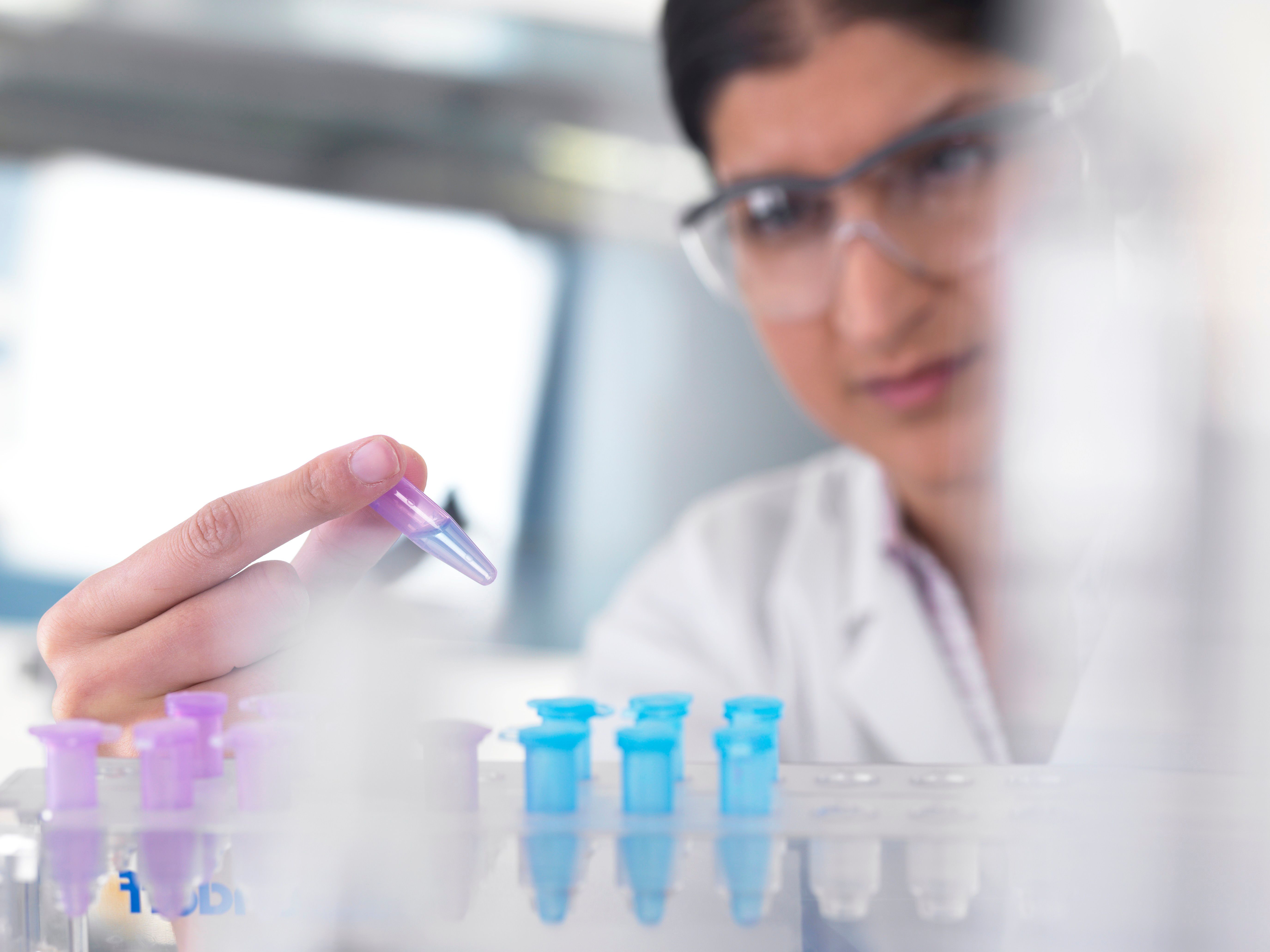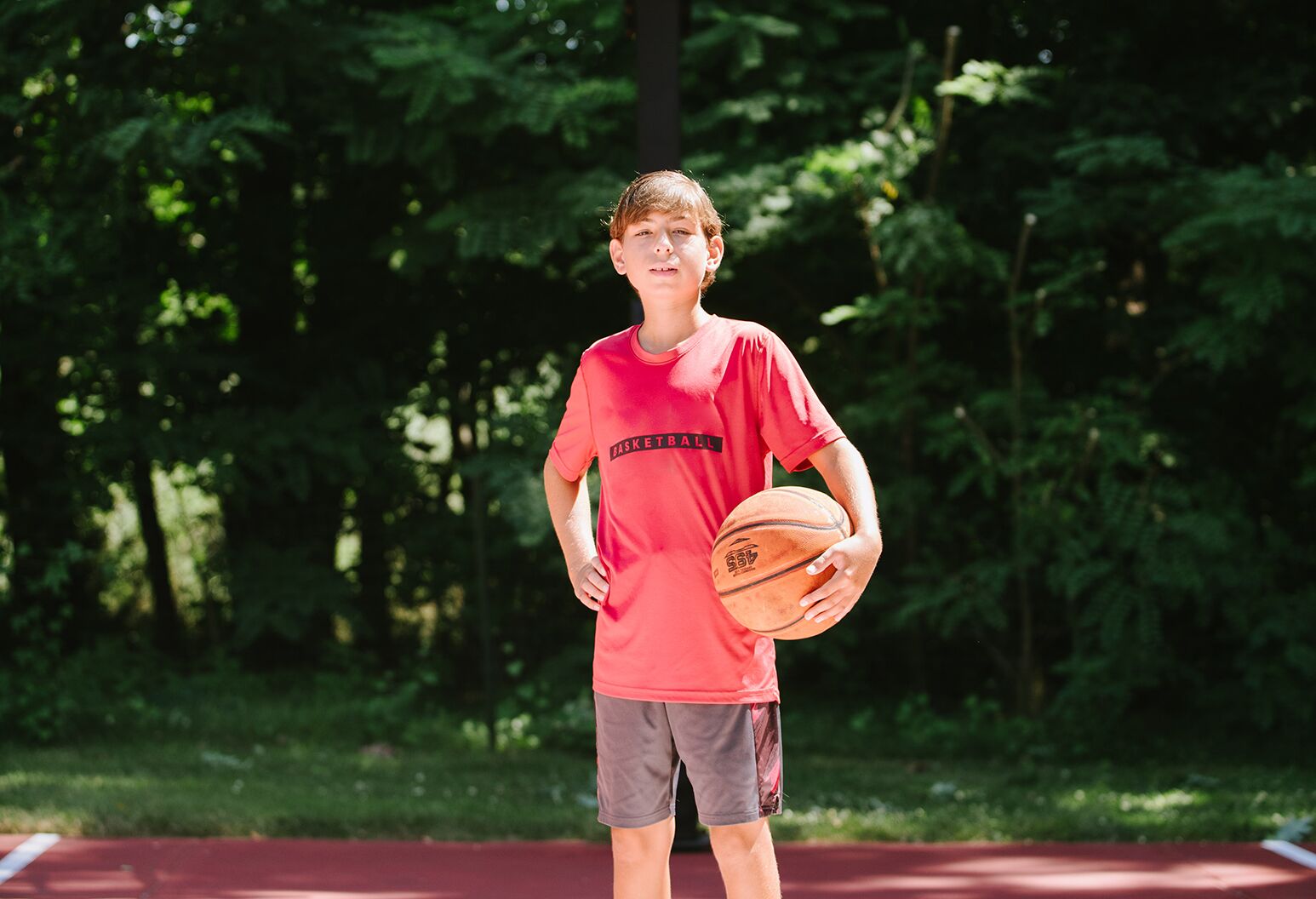Pediatric Leukemia and Lymphoma Program
About us
As one of the largest pediatric leukemia and lymphoma programs in the New York metropolitan area, we provide diagnosis, evaluation and management to pediatric patients with suspected or diagnosed acute lymphoblastic leukemia (ALL), acute myeloid leukemia (AML), chronic leukemia, Hodgkin lymphoma and non-Hodgkin lymphoma. In addition, we evaluate children with lymphadenopathy (enlarged lymph nodes). The Leukemia and Lymphoma Program offers individualized therapies for every type of leukemia or lymphoma seen in infants, children, adolescents and young adults.
Our multidisciplinary team of experienced physicians, nurse practitioners, Magnet®-recognized nurses, social workers and child life specialists see patients through every step of the process, from initial evaluation through treatment. Each patient receives care directed by an attending pediatric oncology physician with a nurse practitioner and pediatric oncology fellow involved in the care. Our oncology social workers and child life specialists provide additional support to patients and families, and psychotherapy and counseling are provided on an ongoing basis as needed.
The focus of our Leukemia and Lymphoma Program is to provide supportive, compassionate care for our patients in both the inpatient and outpatient settings. We hold weekly interdisciplinary meetings to discuss the care of our patients and create a cohesive management plan. As part of Cohen Children’s, we bring together experts in pediatric oncology, pediatric surgery, pediatric radiology, interventional radiology, pediatric anesthesia, pediatric pharmacology, pediatric social work, child life and a full complement of pediatric subspecialty services to care for our patients. Our 25-bed pediatric intensive care unit and a pediatric emergency room are available for our patients 24/7.
Diagnosis
The Pathology Department has expertise in pediatric pathology and hematopathology. Hematopathology, flow cytometry and cytogenetic and molecular pathology laboratories within Northwell Health are used for the diagnosis and follow-up of our patients. All diagnostic and relapsed patient samples are sent for molecular genetic sequencing in order to guide future individualized therapy of each patient.
Treatment
Each patient receives individualized therapy based on his or her diagnosis. Treatment may include chemotherapy, radiation therapy, bone marrow transplantation and immunotherapy or a combination of modalities as needed. Our patients also have access to the wide breadth of clinical trials we conduct and participate in.
Prognosis
Acute lymphoblastic leukemia is the most common form of leukemia found in children, but it has one of the highest cure rates in childhood cancers. Approximately 85 percent of patients aged 1 to 18 years with newly diagnosed ALL, treated on current regimens, are expected to be long-term event-free survivors.
Approximately 20 percent of childhood leukemias are of myeloid origin. Depending on certain characteristics that determine their risk status, children with acute myeloid leukemia typically have a 35 to 75 percent prognosis of survival.
Childhood non-Hodgkin (NH) lymphoma is a type of cancer that forms in the lymph system. There are three major types of childhood NH lymphoma:
- Mature B cell lymphoma
- Lymphoblastic lymphoma
- Anaplastic large cell lymphoma
These subtypes have a 75 percent to 90 percent cure rate with chemotherapy.
Hodgkin lymphoma is also a type of cancer that forms in the lymph glands. It is more common in adolescents and young adults. Approximately 90 to 95 percent of children with Hodgkin lymphoma can be cured, with the majority of patients receiving chemotherapy alone.
Research
The Leukemia and Lymphoma Program conducts numerous clinical trials for children with newly diagnosed leukemia and lymphomas, as well as patients with relapsed or refractory disease. Cohen Children’s is an active participant in National Cancer Institute-sponsored trials through the Children’s Oncology Group (COG). All patients are reviewed for eligibility to participate in available Children’s Oncology Group trials.
Scientific discoveries aren’t limited to the laboratory. Every day, new medications, devices and diagnoses are happening at the Feinstein Institutes for Medical Research.


